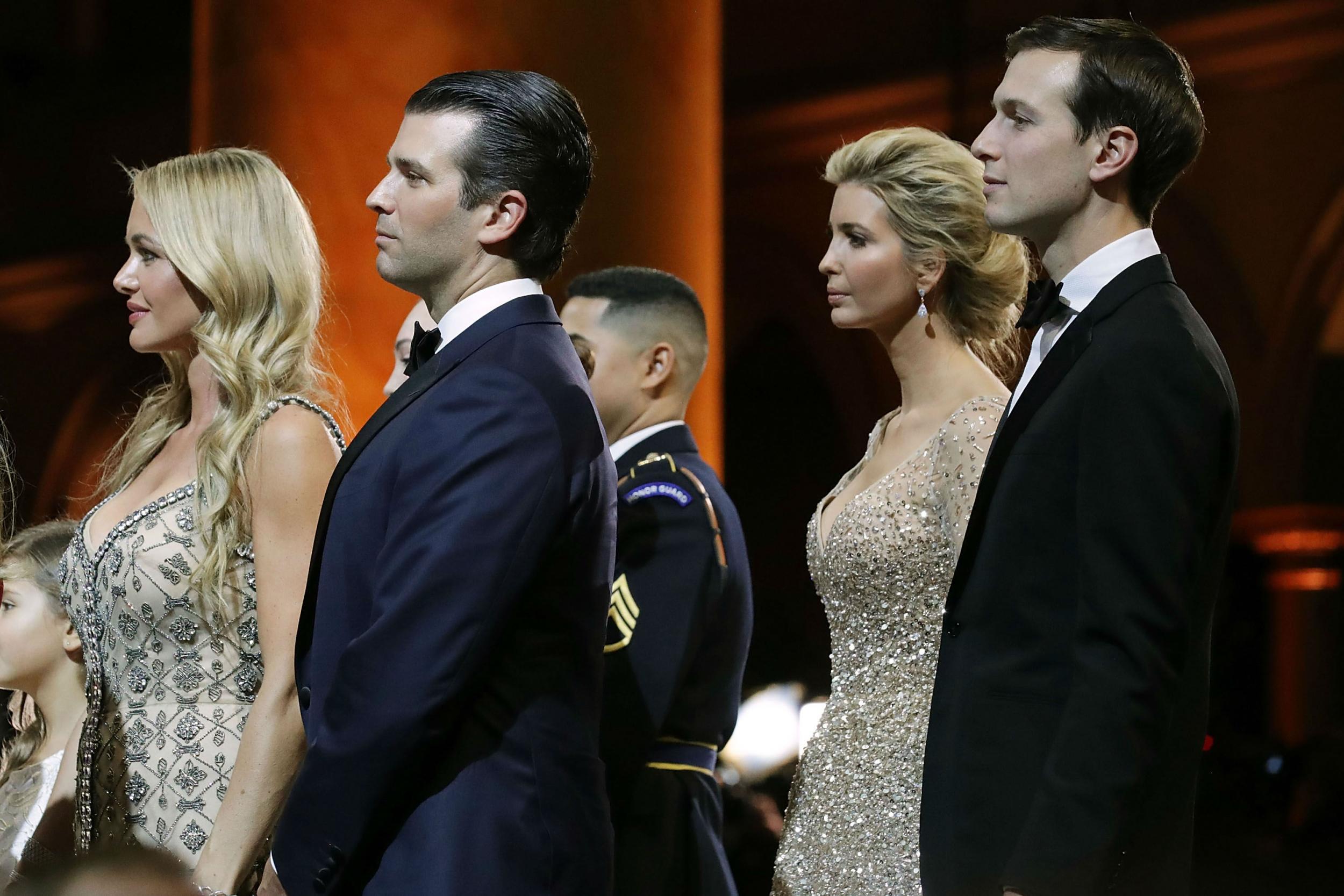Ivanka Trump and Donald Trump Jr were under investigation for alleged fraud for two years
US President's eldest children accused of using inflated sales figures to tempt property buyers

Your support helps us to tell the story
From reproductive rights to climate change to Big Tech, The Independent is on the ground when the story is developing. Whether it's investigating the financials of Elon Musk's pro-Trump PAC or producing our latest documentary, 'The A Word', which shines a light on the American women fighting for reproductive rights, we know how important it is to parse out the facts from the messaging.
At such a critical moment in US history, we need reporters on the ground. Your donation allows us to keep sending journalists to speak to both sides of the story.
The Independent is trusted by Americans across the entire political spectrum. And unlike many other quality news outlets, we choose not to lock Americans out of our reporting and analysis with paywalls. We believe quality journalism should be available to everyone, paid for by those who can afford it.
Your support makes all the difference.Ivanka Trump and her brother Donald Trump Jr allegedly came close to being charged with fraud after misleading potential buyers of properties that were failing to sell.
The US President’s eldest children were accused of using inflated figures about how well flats were selling in a bid to lure further buyers, reports investigative news outlet, ProPublica, which collaborated with The New Yorker and WNYC.
Evidence reportedly included emails from the Trumps making clear they were aware the figures were massaged, including one in which they discussed how to coordinate the false information they were providing.
Another worried that a reporter might be closing in on the alleged fraud.
When New York's Major Economic Crimes Bureau opened an investigation into the siblings in 2010, the Trump Organization hired top criminal defence lawyers.
Their lawyers told prosecutors the Trumps had made inflated, though non-criminal claims, but to the frustration of their father the case remained open, ProPublica reported.
Eventually Mark Kasowitz, who had been Donald Trump Sr’s lawyer for a decade, became involved.
In 2012 he donated $25,000 to the re-election campaign of Cyrus Vance Jr, the Manhattan District Attorney (DA) and the man who oversees the Major Economic Crimes Bureau.
In May of that year Mr Kasowitz asked Mr Vance to drop the case. Three months later the DA told prosecutors to close the investigation, ProPublica reported.
Defending his decision, Mr Vance said: “I did not at the time believe beyond a reasonable doubt that a crime had been committed. I had to make a call and I made the call, and I think I made the right call.”
Although he handed back Mr Kasowitz’s $25,000 (£19,000) at the time of the meeting, less than six months after the case was dropped Mr Vance made an even larger donation to the election campaign.
Mr Vance has since told ProPublica he will now hand this second donation back, four years later, to stop the money being a “millstone around anybody’s neck”.
Mr Kasowitz told reporters he donated the money because he was “extremely impressed” at the “impeccable integrity” of Mr Vance. “I have never made a contribution to anyone’s campaign, including Cy Vance’s, as a ‘quid-pro-quo’ for anything,” he added.
Donald Trump Sr unveiled the Trump SoHo in June 2006 and signed the licensing deal with his two children.
Their partners on the development included two Soviet-born businessmen - Tevfik Arif and Felix Sater - who ran the Bayrock Group, a real estate firm which had a suite of offices in Trump Tower for eight years.
Sater, a criminal once jailed for stabbing a man in the face, is a former associate of gangsters and was once an FBI informant.
With the opening of the development coinciding with the financial crash in September 2007, properties were not selling, but the Trumps allegedly claimed the opposite.
Between them, the siblings announced 31 per cent, 55 per cent, then 60 per cent of the properties had been sold. But in March 2010, according to a sworn affidavit by a Trump partner, only 15.8 per cent of the apartments had been sold.
In August 2010 a group of buyers sued the Trump Organization, arguing that falsely claiming 60 per cent of the properties had been sold added value that was not really there.
After the law suit was filed, prosecutors at the Major Economics Crime Bureau opened a criminal investigation.
Meanwhile the Trump Organization had settled the civil case, handing back 90 per cent of buyers’ deposits in exchange for an agreement not to cooperate with prosecutors unless they were subpoenaed.
Two years later, after the meeting between Mr Kasowitz and Mr Vance, Trump defence lawyers were told the investigation was being dropped.
The Trump Organization has been contacted for comment but none had arrived at the time of publication.
Join our commenting forum
Join thought-provoking conversations, follow other Independent readers and see their replies
Comments